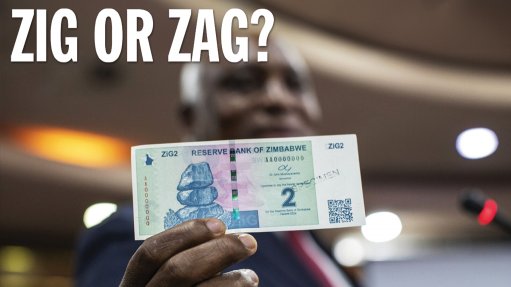Cape Town saves Eskom
With regard to power from independent power producers (IPPs), Cape Town’s acting mayor, Ian Neilson, is quoted in The Citizen newspaper as saying: “The City is fighting for the right to buy cleaner energy directly from the IPPs to improve energy security. This move comes as the energy crisis in South Africa has reached a new peak.
“Its legal team is liaising with the legal teams of other parties with a view to approaching the judge president with mutually agreeable dates for an earlier hearing”.
Now, I was born and brought up in Johannesburg. As far as Cape Town residents think, this classes me with poorly educated, uncaring and money-grabbing humans who never stop to smell the roses. Or the cosmos. Or any living flower. Cape Town inhabitants believe themselves to be at the forefront of what is good and right and just and green and decent.
This latest pronouncement from the acting mayor is right up there with the fynbos, Table Mountain and all that is good. The announcement that Cape Town will buy cleaner energy directly from IPPs sounds so cute and caring, it should be carved in stone. But before you leap for the rings, consider this: deep in Eskom’s operations department, there is a mountain of beer and braai stuff for the party they will have when the City of Cape Town concludes its IPP purchase agreement – because Eskom needs IPP power like another new power station supplied with faulty boilers.
Eskom pays about R2/kWh for IPP power. It sells this for R0.90/kWh, which would mean it makes a loss. However, there is compensation: the cost of Eskom’s IPP electricity purchases is included in the primary-energy portion of Eskom’s allowable revenue. The National Energy Regulator of South Africa (Nersa) grants Eskom the right to fully recover the IPP costs based on a sales estimate for the tariff period. This is not the case for Eskom’s coal and diesel costs, owing to the fact that Nersa has deemed these to be imprudently incurred.
The primary energy cost estimate, together with other costs, makes up the allowable revenue. This is divided by the sales forecast to determine the tariff for the year. Therefore, in this blend of allowable revenue, Eskom has, to date, always fully recovered its IPP costs. So, why would Eskom not want to have this valuable IPP resource?
Look again: Nersa will not allow Eskom to recover diesel costs, deeming them to be “imprudently incurred”. Eskom uses diesel to fire its gas turbine stations. A gas turbine can ramp to full power in two minutes. A coal station takes time to pick up load. Thus, when the wind is blowing in the daytime, all is good. At dusk, when the wind stops, the IPPs drop about 1 000 MW off the power system. It happens in less than 30 minutes. Gas turbines to the rescue! Consuming 1 𝓵 of diesel per kilowatt hour, or about R2.50/kWh. This continues until the coal-fired system ramps up to carry this load. And for this diesel cost, Eskom is not compensated. And for each hour this happens, Eskom pays R2.5-million.
But now the City of Cape Town steps in. It will pay the IPPs R2/kWh, unless the IPPs are very stupid. This means that Cape Town will make almost no profit on electricity sales and Eskom will be relieved of having to use gas turbines as standby. There will be compensations: as long as the IPPs are generating, the City will not pay technicians overtime to operate any circuit breakers for load-shedding. But this will not mean an end to load-shedding, anymore than IPP power prevents load-shedding right now. But the arithmetic is right there. Right now, the City buys power from Eskom at R0.90/kWh. It sells power at between R2/kWh and R2.70/kWh. If the City buys from IPPs, it will pay double per kilowatt hour, compared with what it pays Eskom. Sounds dodgy to me.
Comments
Press Office
Announcements
What's On
Subscribe to improve your user experience...
Option 1 (equivalent of R125 a month):
Receive a weekly copy of Creamer Media's Engineering News & Mining Weekly magazine
(print copy for those in South Africa and e-magazine for those outside of South Africa)
Receive daily email newsletters
Access to full search results
Access archive of magazine back copies
Access to Projects in Progress
Access to ONE Research Report of your choice in PDF format
Option 2 (equivalent of R375 a month):
All benefits from Option 1
PLUS
Access to Creamer Media's Research Channel Africa for ALL Research Reports, in PDF format, on various industrial and mining sectors
including Electricity; Water; Energy Transition; Hydrogen; Roads, Rail and Ports; Coal; Gold; Platinum; Battery Metals; etc.
Already a subscriber?
Forgotten your password?
Receive weekly copy of Creamer Media's Engineering News & Mining Weekly magazine (print copy for those in South Africa and e-magazine for those outside of South Africa)
➕
Recieve daily email newsletters
➕
Access to full search results
➕
Access archive of magazine back copies
➕
Access to Projects in Progress
➕
Access to ONE Research Report of your choice in PDF format
RESEARCH CHANNEL AFRICA
R4500 (equivalent of R375 a month)
SUBSCRIBEAll benefits from Option 1
➕
Access to Creamer Media's Research Channel Africa for ALL Research Reports on various industrial and mining sectors, in PDF format, including on:
Electricity
➕
Water
➕
Energy Transition
➕
Hydrogen
➕
Roads, Rail and Ports
➕
Coal
➕
Gold
➕
Platinum
➕
Battery Metals
➕
etc.
Receive all benefits from Option 1 or Option 2 delivered to numerous people at your company
➕
Multiple User names and Passwords for simultaneous log-ins
➕
Intranet integration access to all in your organisation


















